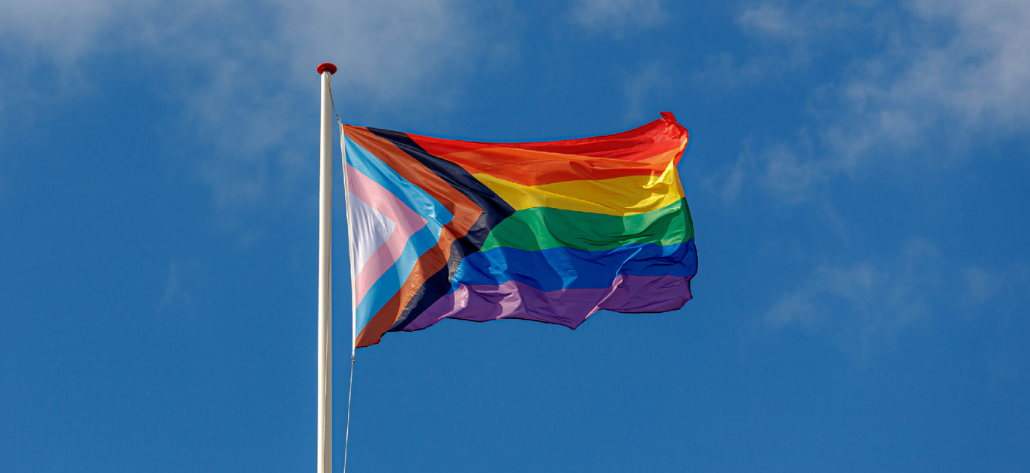February is Black History Month, an annual celebration of the achievements by African Americans and a time to recognize the central role of Black people in United States history.
We’re proud to share the story of six Black female lawyers that smashed the glass ceiling and changed the American legal landscape. These women paved the way for other aspiring Black female lawyers by leading with courage even as they were met with adversity.
Please join us in celebrating Black History month and read the inspirational stories below.
Charlotte E. Ray (1850-1911)
Charlotte E. Ray was born in New York City on January 13, 1850. After graduating from college in 1869, Ray became a teacher at Howard University, where she would later register in the Law Department. In fear that she would not be admitted due to her gender, Ray registered as C.E. Ray.
Charlotte Ray graduated from the Howard University School of Law on February 27, 1872, and was admitted to the District of Columbia Bar on March 2, 1872, making her the first black female attorney in the United States. She was also admitted as the first black female to practice in the Supreme Court of the District of Columbia on April 23, 1872.
Ray eventually stopped practicing because she was unable to maintain a steady client flow due to racial and sexist prejudice. She later moved back to New York and became a teacher in Brooklyn. It is also believed that she was active in the women’s suffrage movement and joined the National Association of Colored Woman.
Historic Firsts:
- First African-American female lawyer in the United States
- First female admitted to the District of Columbia Bar
- First female admitted to practice before the Supreme Court of the District of Columbia
Jane Bolin (1908-2007)
“I wasn’t concerned about first, second or last. My work was my primary concern” — Jane Bolin
Jane Bolin was born in Poughkeepsie, New York on April 11, 1908. She was the daughter of Gaius C. Bolin, a lawyer and the first black person to graduate from Williams College. At 16, she enrolled at Wellesley College where she was one of only two black freshmen. Bolin graduated in the top 20 of her class in 1928.
Although Bolin was strongly discouraged from applying to Yale Law School due to her race, she was admitted and graduated in 1931 as the first black woman to receive a law degree from Yale. She then went on to become the first black woman to join the New York City Bar Association in 1932.
On July 22, 1939, Mayor of New York City, Fiorello La Guardia, appointed Bolin as a judge of the Domestic Relations Court, making Bolin the first black woman to serve as a judge in the United States. Bolin proceeded to be the only black female judge in the country for twenty years.
Bolin remained a judge of the court for 40 years until her retirement at age 70. She worked to encourage racially integrated child services, ensuring that probation officers were assigned without regard to race or religion, and publicly funded childcare agencies accepted children without regard to ethnic background.
Historic Firsts:
- First African-American woman to graduate from Yale Law School
- First African-American woman to join the New York City Bar Association
- First African-American woman to join the New York City Law Department
- First African-American woman to serve as a judge in the United States
Constance Baker Motley (1921-2005)
“Something which we think is impossible now is not impossible in another decade.” — Constance Baker Motley
Constance Baker Motley was born on September 14, 1921 in New Haven, Connecticut. Baker was inspired to attend law school after hearing a speech by Yale Law School graduate George Crawford, a civil rights attorney for the New Haven Branch of the NAACP.
Motley attended New York University in 1943 and received her law degree from Columbia Law School in 1946. During Baker’s second year of law school, future U.S. Supreme Court Associate Justice, Thurgood Marshall, hired her as a law clerk.
After graduating from Columbia, Motley became the NAACP Legal Defense and Educational Fund’s (LDF) first female attorney. Motley went on to become Associate Counsel to the LDF, making her a lead attorney in many significant civil rights cases.
In 1950, Motley wrote the original complaint in the case of Brown v. Board of Education. She was also the first African-American woman to argue a case before the U.S. Supreme Court (Meredith v. Fair). Motley was successful in nine of the ten cases she argued before the Supreme Court.
Motley was elected to the New York State Senate in 1964, making her the first African-American woman to sit in the State Senate.
In 1966, Motley broke another glass ceiling by becoming the first African-American federal judge after her nomination to a seat on the United States District Court for the Southern District of New York by President Lyndon B. Johnson.
Historic Firsts:
- First African-American woman appointed to the federal judiciary
- NAACP Legal Defense and Educational Fund’s first female attorney
- First African-American woman to argue a case before the Supreme Court
- First African-American woman to sit in the State Senate
Barbara Jordan (1939-1996)
“What the people want is very simple — they want an America as good as its promise.” — Barbara Jordan
Barbara Jordan was born in Houston, Texas on February 21, 1936. Due to segregation, Jordan could not attend The University of Texas at Austin, and instead chose Texas Southern University, a historically-black institution. After majoring in political science, Jordan attended Boston University School of law in 1956 and graduated in 1959.
After two unsuccessful campaigns for the Texas House of Representatives in 1962 and 1964, she won a seat in the Texas Senate in 1966. The victory made her the first African American state senator since Reconstruction in 1883, and the first woman to ever serve in that body.
In 1972, Jordan was elected to the U.S. House of Representatives as the first woman elected to represent Texas in the House. While serving in the House, she was a member of the House Judiciary Committee and where she later delivered an influential televised speech supporting the impeachment of President Richard Nixon.
In 1976, Jordan became the first black woman to deliver a keynote address at the Democratic National Convention.
Jordan was later awarded the Presidential Medal of Freedom by President Bill Clinton in 1994.
Historic Firsts:
- First African-American woman elected to the Texas Senate
- First Southern African-American woman elected to the United States House of Representatives
- First African-American woman to deliver a keynote address at a Democratic National Convention
Loretta Lynch (1959-Present)
“The power to arrest — to deprive a citizen of liberty — must be used fairly, responsibly, and without bias.” — Loretta Lynch
Loretta Lynch was born on May 21, 1959, in Greensboro, North Carolina. In 1981, Lynch earned a Bachelor of Arts in English and American literature from Harvard College and a J.D. from Harvard Law School in 1984.
Lynch began her legal career as a litigation associate in New York City, and eventually became a drug and violent-crime prosecutor in the U.S. attorney’s office in 1990.
From 1994 to 1999 Lynch made her way from chief of the Long Island Attorney’s Office to chief assistant U.S Attorney in the Eastern District. In 1999, Lynch was nominated by President Bill Clinton to serve as the U.S. Attorney for the Eastern District of New York. In 2001, Lynch left the U.S. Attorney’s Office to become a partner at Hogan & Hartson (later Hogan Lovells) until 2010.
In 2010, President Barack Obama nominated Lynch to again serve as the United States Attorney for the Eastern District of New York.
In 2014, President Barack Obama nominated Lynch for the position of U.S. Attorney General, succeeding Eric Holder, making her the first African-American woman and second African-American (after Holder) to hold this office.
Her tenure ended on January 20, 2017, when Donald Trump was sworn in as President of the United States.
Historic Firsts:
- First African-American woman to serve as United States Attorney General
Kamala Harris (1964 – Present)
“My mother had a saying: ‘Kamala, you may be the first to do many things, but make sure you’re not the last.'” – Kamala Harris
Kamala Harris was born in Oakland, CA on October 20, 1964. By the time she attended kindergarten, Harris was being bused to school as part of a desegregation program. Throughout her childhood, children in her neighborhood were permitted from playing with her and her sister because they were Black.
After high school, Harris attended Howard University and eventually received her law degree from the University of California, Hastings College of Law. After graduation, she worked as a deputy district attorney in California and later as an assistant district attorney in San Francisco. In 2004, she became the first person of color elected as the District Attorney of San Francisco.
In 2011, Harris would become the first African American and first South Asian American Attorney General of California. She was re-elected in 2014. Harris would later be elected as a United States Senator in 2017.
In 2020, Joe Biden and Kamala Harris successfully won their election as President and Vice President of the United States, making Harris the first woman, first African American, and first South Asian American Vice President in U.S. history.
Historic Firsts:
- First person of color elected as the district attorney of San Francisco
- First African American, and the first South Asian American to hold the office of Attorney General in California
- First woman, first African American, and first South Asian American Vice President of the United States.


